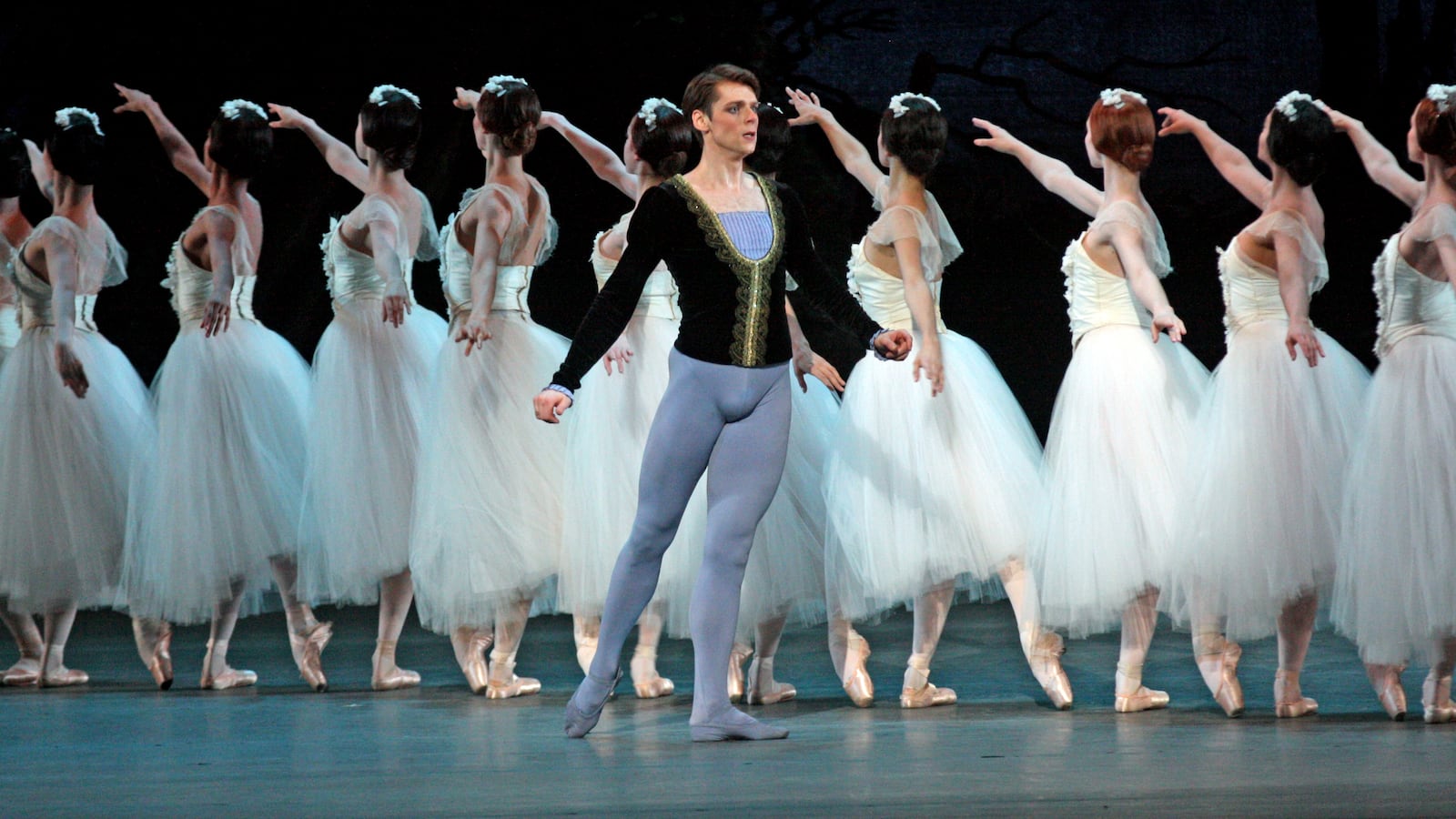One of the greatest Russian ballet dancers of his generation plunged to a tragic death from the fifth floor of his apartment building in St. Petersburg on Saturday. He was 39 years old.
Vladimir Shklyarov’s fatal fall has inevitably prompted an online surge of renewed interest in ‘Russian Sudden Death Syndrome,’ referring to an uncanny propensity among Kremlin critics and Russian criminal elements for meeting untimely deaths under suspicious or otherwise bizarre circumstances–very often, by falling out of windows.
Though opposed to the war in Ukraine, the late dancer was hardly the most outspoken of Vladimir Putin’s detractors. Shklyarov expressed anti-war sentiments in a since-deleted Instagram post in March 2022, despite which he was permitted to continue dancing at the internationally-lauded Mariinsky Theatre for the remaining two-and-a-half years of his life.
Shklyarov’s death has been registered as an accident by Russian authorities. For all that’s worth, reports also suggest he was taking a powerful assortment of painkillers ahead of scheduled back surgery, with friends and colleagues adding he is thought to have “lost his balance” after going out on “a very narrow balcony” for a smoke.
Accidents do happen, and Russia notoriously has one of the highest recorded suicide rates in the world. But whatever their true incidence, there’s little doubt these factors also provide cover of at least semi-plausibility for those looking to dispatch government critics, muckraking journalists, and oligarchic rivals—as just some of Russia’s most high-profile ‘death by window’ cases attest.
Nikolay Kruchina, Georgy Pavlov, and Dmitry Lissovolik
Formally the Administrator of Affairs of the Central Committee of the Communist Party of the Soviet Union, Nikolay Kruchina was effectively Russia’s chief treasurer from 1983, in charge of an estimated $9 billion in assets which, curiously enough, have not been located since his KGB-certified suicide in August 1991.
Nor was Kruchina the only member of the Communist Party’s financial machine to ostensibly take his own life that year, with the death under almost identical circumstances of both his predecessor as treasurer, Georgy Pavlov, and deputy chief of the party’s international department, Dmitry Lisovolik, just two months later.
British investigative journalist Catherine Belton writes in her 2020 book Putin’s People that all three men may quite possibly have fallen foul of an intelligence plot, carried out by the KGB and other actors amid the Soviet Union’s collapse, to siphon the Russian state’s considerable funds into foreign accounts for use as slush funds for future black ops.
“But to this day, no one knows what exactly happened—or if they do, they are not willing to tell,” as Belton puts it.
Ivan Safronov
A Russian journalist covering military affairs, Ivan Safronov died after falling out of a fifth floor staircase window in his Moscow apartment building on March 2, 2007, with his death similarly recorded as suicide despite his friends and colleagues claiming he had been of sound mind in the weeks and days leading up to his demise.
Safronov wrote extensively about difficulties faced by the Russian intercontinental ballistic missile program, and suspected Russian arms deals in the Middle East. In particular, he told editors in the months before his death he had obtained evidence Moscow was selling weapons systems to pariah states like Iran and Syria, though he’s thought to have declined to publish the allegations for fear of retribution from state security forces.
In a tragic twist, his son, also named Ivan Safronov and a fellow journalist, was handed a record 22-year prison sentence in September 2022 for handling top-secret military information, following charges of treason described by his supporters as unfounded and politically-motivated.

Nikolai Gorokhov
Nikolai Gorokhov tumbled 50 feet from the balcony of his home in Moscow in March 2017 after a winch he was using to lever a bathtub into the apartment suddenly snapped.
A lawyer for the family of Sergi Magnitsky—the Russian whistleblower who exposed a massive fraud implicating dozens of government officials, and whose 2008 death in prison ultimately shaped the contemporary U.S. sanctions system—Gorokhov’s fall came ahead of a court appearance at which he was due to represent Magnitsky’s mother in a claim against those responsible for the corruption scheme.
What sets Gorokhov’s case aside is that he in fact survived the fall. He claimed to have no memory of the sequence of events preceding it, however, but later told reporters it was “no accident” and that he was “still afraid for my life.”
Dan Rapoport
An established Latvian-American investment banker and ardent critic of Vladimir Putin, Dan Rapoport was discovered on August 19, 2022 on the pavement outside a lavish apartment building in Washington, D.C.
Speaking with the Daily Beast at the time, Rapoport’s family scorned local police for operating under the assumption he had killed himself and not entertaining the possibility of foul play ahead of his death, citing threats made against his life by politically-connected actors prior to his departure from Russia in 2012.
“I don’t believe that a person with such a fierce love for life, such endless self-irony and optimism, could have committed suicide,” as one friend put it, “especially in such a savage way as throwing himself out a window.”
Rapoport’s passing was also notable for the fact that his late business partner, Sergey Tkachenko, had died after also falling from his apartment window five years prior. A medical examiner listed Rapoport’s cause of death as trauma due to a fall, but recorded the manner of his death as “undetermined.”
Kirill Zhalo
Like something straight from the pages of a Cold War-era spy novel, Russian diplomat Kirill Zhalo was found lying dead in a pool of blood in October 2021 after falling from a window on the third floor of Moscow’s embassy in Berlin.
Reports suggested it was not immediately clear from the scene whether Zhalo had died before or after the fall. Investigative journalism outlet Bellingcat was later able to establish his identity as the son of a top-ranking FSB official, allegedly himself the head of a unit linked to the daylight assassination of a former Chechen militant in the German city not two years earlier.
But any odds of solving the mystery behind the embassy employee’s death disappeared with his body which, in line with standard diplomatic protocol, was swiftly whisked back to Russia the following day.








